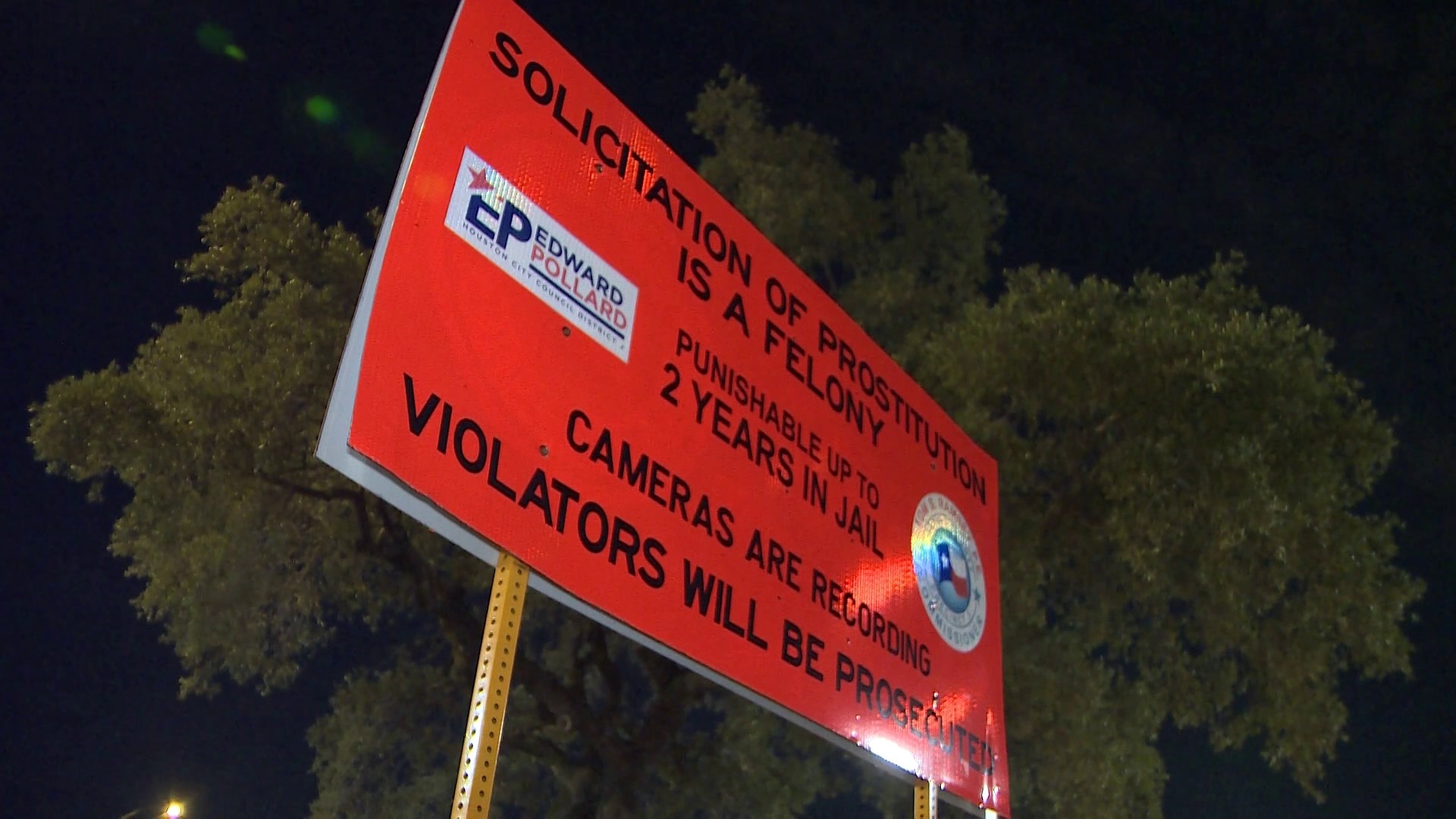HOUSTON — One year after a groundbreaking law made buying sex a felony in Texas, a KHOU 11 Investigates analysis of court records showed that the Harris County District Attorney’s Office rarely got felony convictions in those cases.
The problem of soliciting prostitution has festered for years both online and on the streets, like on the so-called “track” in southwest Houston. On any given night along Bissonnet Street, a parade of Johns drive by looking to buy sex in street-brokered deals.
This demand side of the sex trade economy sustains and perpetuates human trafficking, according to advocates, and prompted Texas lawmakers to nearly unanimously pass the first-of-its-kind bill.
“To make sure that Texas is way ahead of every state,” Rep. Senfronia Thompson told the Texas House Committee on Criminal Jurisprudence last March.
The Houston Democrat was the primary sponsor of HB 1540, which made solicitation of prostitution a state jail felony on the first offense and made it punishable by up two years behind bars upon conviction.
A few months after the bill took effect, in September 2021, Harris County District Attorney Kim Ogg praised the tougher penalty for buying sex at a Crime Stoppers of Houston event.
“The most important change I think was the legislature’s determination that buying sex was going to be a felony, and we are prosecuting individuals for just that,” Ogg said last December.
The nonprofit advocacy group Children at Risk testified in Austin in support of the bill. Staff attorney Caroline Roberts said signing a bill into law is only half of the equation.
“It has to be implemented correctly,” Roberts said. “So that’s always a question that we have: 'How is this law being implemented?'”
In the year after the law took effect, an analysis of court records showed that 518 felony solicitation of prostitution cases were filed. Of the 232 cases that have been disposed of, only 11 (5%) ended in felony convictions.
Meanwhile, 178 cases (77%) of those that were disposed of were dismissed under what’s known as pretrial diversion. In those deals offered by prosecutors, defendants generally were required to take a decision-making class or “John’s class, ”and either pay a fine or make a donation to the Houston Area Women’s Center. In return, those Johns were later given an opportunity to get the criminal charge expunged -- wiped off their record.
“My question there is: ‘What does that diversion mean?'” Roberts said. “Is it a very robust, well-vetted, evidence-based program that is done weeks and weeks and weeks?”
Roberts said not all diversion programs are created equally and she cautioned against some that are offered online.
“It’s not accountability to just check a box, watch a video and be done with it, be done with a felony,” she said.
Nathan Beedle, a trial bureau chief with the Harris County District Attorney’s Office, said Ogg has the legal ability to divert any case that she sees fit under the Texas criminal code. When asked if there was a master list of classes that were vetted by his office to ensure their quality effectiveness, Beedle said he was not aware of any that exist.
"That’s something that we can definitely look at, for sure,” he said.
Beedle insisted that the low felony conviction rate is not them being soft on crime or buying sex “lacks priority” compared to murder cases, sexual assaults, aggravated robberies and other violent crimes.
“We have to prioritize exactly what we’re going to be devoting most of our resources to,” he said.
Beedle added that pretrial diversion is usually offered to first offenders only, and the recidivism rate in his experience is among the lowest of any crimes.
“In most cases where people get pretrial diversion I think it’s absolutely the right way to go if they complete the necessary programs with a low likelihood of them coming back,” Beedle said.
KHOU 11 Investigates requested a comment from Thompson said she was unavailable due to her schedule. Sen. Joan Huffman, a Houston Republican who co-sponsored the sex-buying bill, said it’s an issue that she will monitor carefully in the next legislative session.
“While it’s good news that the law is being used and individuals are being arrested and charged, I am concerned about whether the appropriate punishment is being implemented,” Huffman said.
In Montgomery County, prosecutors have been enforcing the law much differently. Of the 39 disposed of cases since the law went into effect, 33 resulted in criminal convictions, according to Assistant District Attorney Kelly Blackburn.

